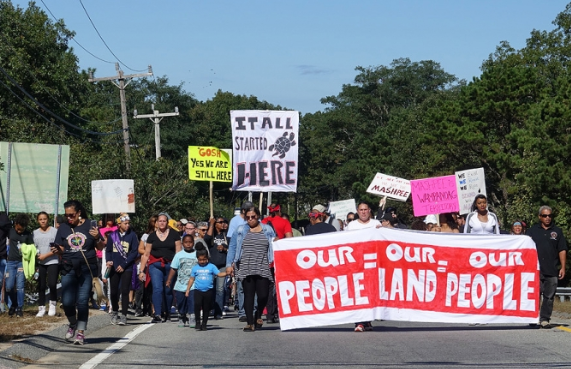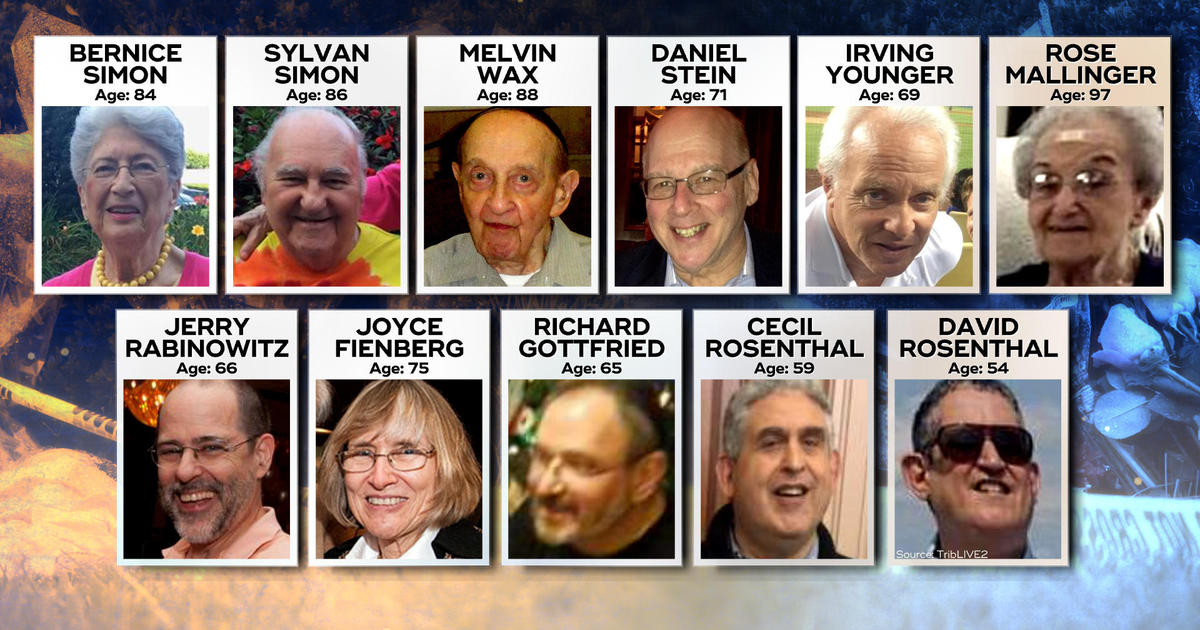LISTSOur biweekly lists lay out notable issues in the news and tell you what you can do about them.
|
SUBSCRIBE TO EMAIL UPDATES:
|
|
11/26/2018 0 Comments Holiday Haze: Nov. 12th-26th 2018Hello Teen Resisters! We hope you had a wonderful Thanksgiving. We're ready to dive in to some of the biggest issues of the week. Also to take note of: - the Green New Deal proposed by new House Dems in response to the climate crisis. It's pretty fantastic. - The current situation at the border, which we are not covering until next list because of its undeveloped nature. If you have questions about it, feel free to email us or DM us on Instagram. For now, here's a good article. So let's jump in! What Went Down
0 Comments
11/12/2018 0 Comments Midterm Elections 2018 RecapLast Tuesday were the much anticipated Midterm Elections. We've been providing actions about them for some time now. Here's our recap of what went down.
Before we dive in, we want to highlight a couple more standout races. In one major upset, Democrat Kendra Horn turned Oklahoma City blue for the first time in almost 50 years, defeating Republican incumbent Steve Russell in Oklahoma’s 5th district. And in New York’s 11th Congressional District, which covers Staten Island and a sliver of Brooklyn, Democratic veteran Max Rose beat Trump-endorsed incumbent Dan Donovan. Although a FiveThirtyEight polls gave Rose only a 1 in 4 chance of winning and rated the race “Likely Republican,” Rose won by an astounding six percentage points. And overall, New York, New Jersey, Pennsylvania, and California—Democrats flipped either three or four seats in each—were key to this representation of the Blue Wave. 10 seats remain uncalled, so Democrats have the chance to pick up even more seats as final results continue to trickle in. Of those uncalled seats, Democrats have a lead in four. Democratic control of only one house of Congress might seem like a disappointment, but the House of Representatives alone can do a whole lot of good. Admittedly, progressive legislation that passes the House is unlikely to become law facing opposition from both the Senate and the White House. But a House controlled by Democrats means…
In a major Democratic victory, though, Teens Resist candidate Jacky Rosen beat Republican incumbent Dean Heller to win the seat in Nevada. And, after a very drawn-out race, Democrat Kyrsten Sinema emerged victorious over Republican Martha McSally in Arizona, flipping another seat blue. In Florida, however, a recount is ongoing, presenting a potential opportunity for Democrats (if they win) to limit the Republican net gain to only one seat. The recount is taking place due to the difference between the top two candidates being within Florida’s recount margin of one half a percent. The chance of a Democratic win in the Senate was highly unlikely, given the fact that Democrats had to play defense in many races and had only a handful of opportunities to win Republican-held seats, many of which were in heavily rural, red states. Sinema’s and Rosen’s victories in Arizona and Nevada are significant in their location in the west, which once was thought of as a bastion of conservatism. Though the 'blue wave’ may not have entirely come to fruition within the Senate, a blue ripple has definitely occurred. GUBERNATORIAL RACES Last week, Democrats made impressive gains in gubernatorial races during the midterm elections. The first regular election in all but three states since 2014, the gubernatorial primaries were held in 36 states and three territories. Incumbent state governors running to be reelected included 14 Republicans, 5 Democrats, and 1 independent. Winning 49.4% of the popular vote, Democrats flipped seven Republican strongholds, while Republicans lost six seats on the Federal Reserve Board of Governors. Notably, in Kansas, one of the most conservative states in the nation, Democratic State Senator Laura Kelly won in a decisive victory over current Kansas Secretary of State (and ruby-red Republican) Kris Kobach. Similarly, in the gubernatorial race in Illinois, Michigan billionaire J.B Pritzker (Dem) unseated first term Governor Bruce Rauner (Rep), who supported the suspension of Syrian refugees into our nation. In Wisconsin, Democrat Tony Evers narrowly beat incumbent Republican Scott Walker largely by running on a platform of education. The highly contested race in Florida is currently being recounted, although Democrat Andrew Gillum is lagging slightly behind his opponent. Check the GA/FL section below for more info on those races!! The combination of tireless activism, grassroots efforts, and passionate lobbying across the country will result in substantial progress for the Democratic party. Almost all the governors elected last week will still be in office in 2021, when the next cycle of congressional redistricting begins. This is significant because the 2022 midterm elections will feature new boundaries for House districts based on the 2021 census. In 37 states, the legislature approves these maps, and in the majority of those states, the governor can veto the redrawing of legislation maps. In general, the gains Democrats made could also mean significant liberal policy change, tighter gun laws, and looser marijuana laws. ONGOING RACES IN GA AND FL There are a few races that still do not have a winner as of right now (Monday, November 12th at 3:30 PM). We’re spotlighting the ones that have to do with voting rights and voter suppression. One highly publicized race is the Georgia governor’s race. The candidates are Brian Kemp, a Trump-endorsed ruby-red conservative who currently serves as Georgia’s Secretary of State, and Stacey Abrams, an Obama-endorsed candidate known for her liberal beliefs and bipartisan compromises who has served as the Georgia Assembly’s Democratic Minority Leader since 2010. If Abrams wins, she will be the first Black female governor in United States history. Controversy has been present since the election’s beginning—Kemp’s responsibilities as Secretary of State include overseeing elections, meaning that he would be responsible for the fairness of the race he was a candidate in (pretty backward, right?). As we previously covered, an “exact-match” voting policy was introduced in the fall, which demanded that people’s voter registration documents match their Social Security or driver’s records letter for letter and hyphen for hyphen. The policy was meant to combat mostly nonexistent “voter fraud” and (big surprise) disproportionately affected Black and Latinx voters in Georgia. Justice groups affiliated with the Abrams campaign sued and the policies were relaxed a little. On Election Day, Georgia voters were faced with three hour-long lines (the time allotted off from work to vote is two hours), malfunctioning equipment, and confusion over absentee and provisional ballots. Kemp won the majority of votes on election night, but Abrams refused to concede. On election night, three counties had reported only some of their mail-in ballots, and four counties had reported exactly zero of them. Those counties lean Democratic. Since then, Kemp has self-coronated himself, while Abrams has continued to fight, saying that she will not concede until every single vote has been counted. The Abrams campaign has filed lawsuits to count late ballots delayed by Hurricane Michael and other similar voting discrepancies. After around-the-clock legal work, the Abrams campaign has found that at least 30,823 ballots have yet to be counted, and the campaign is confident that a runoff election or recount is possible. Kemp has stepped down as Secretary of State, meaning he would not be overseeing a runoff election if that were to happen. Abrams has said that no matter the outcome, it is important for every vote to be counted for the sake of democracy, and has urged Kemp to support her campaign’s efforts to count every vote. Abrams garnered unprecedented support and received 4 percent more of Georgia’s population of white voters than Hillary Clinton did in 2016. She also received half of the votes of white, college-educated women, while Clinton received only a third. A similar situation is occurring in Florida, where progressive Democrat Andrew Gillum is running for governor and Bill Nelson is running for Senate. The races were razor-thin, and the Florida Secretary of State announced that a recount would take place for the gubernatorial, Senate, and agricultural commissioner’s races. This development came after Gillum revoked his concession and various lawsuits were filed. Here is a more detailed description of recounts in the state, if you’re interested. In a major move to combat voter suppression (in future elections), the state also passed a ballot measure that will give over 1 million individuals previously convicted of felonies in Florida the right to vote in the future. BIG FIRSTS & DEMOGRAPHICS!
FIRSTS
Some notable facts about voter demographics in the two-party U.S. House vote:
If you want more detailed info and statistics, check out this article and this article! Since the elections were fairly recent and there’s a lot of data still coming in/being analyzed, this is obviously an overview of who voted how. If you’re interested, make sure to do some googling in a couple weeks! Hello Teen Resisters!! These past two weeks might be the craziest that 2018 has seen thus far (three shootings. midterms. bomb threats. foreign elections. the constitution threatened by a president. the list goes on.) That's why we decided to format this list a little differently to make things less overwhelming. We've separated the list into three main sections: Key News Items (really important things that happened but that we can't really do much about, other than being informed); News Linked to Actions (things that happened that relate to some main issues/ideas that we can act upon); and Actions, which ties together "what can you do" into a shorter list. Before you jump in, check out our two urgent topics below!! (I'm sure you can guess what at least one of them is...election day is near) Sending all of our love, support, and passion!! peace&power, TR URGENT UPDATE 1: MIDTERMS!!! They are tomorrow. Tell everyone you know to vote. Phonebank, text, canvass, volunteer, post on social media. Check out these past lists (list/descriptions of featured candidates, update and guide to phone banking, update and voter suppression) for ways to get involved and for races to watch. For further reading, here are: Everything you need to know (NYT) Senate races to watch (FiveThirtyEight) House races to watch (NYT) Midterms road map (CNN) URGENT UPDATE 2: TRUMP ANTI-TRANS MEMO Last list, we reported on the horrible new anti-trans policy that the Trump administration wants to implement. You can refer back to that, and check on some of these articles for more recent developments: what went down: key news items
The beginning of Bolsonaro’s campaign included numerous challenges, including running against former president Luiz Inácio Lula da Silva, who was president for 8 years. During the campaign, da Silva was sent to prison for corruption charges. Bolsonaro’s opposition was Fernando Haddad, who served as a stand in for da Silva. In addition to facing Haddad as a challenger, Bolsonaro experienced a hectic campaign, during which he was stabbed in the abdomen at a rally this September. Despite this being a physical setback, Bolsonaro’s popularity only increased as a result of the stabbing. Bolsonaro has often said that he will reverse the status quo in Brazil and focus on reducing the crime rate, which has included a record high in homicides over the past year. As president, Bolsonaro claims that he says that he will increase the power of military leaders, allow the police in Brazil to kill suspects, make it easier for the public to obtain guns, and decrease the age of criminal responsibility. Across the board, Bolsonaro is attempting to fight violence with violence. Bolsonaro’s presidency has the power to set precedent for global politics, as well as encourage a worldwide shift to the right. Links to articles for a more comprehensive and in depth look at this topic: Jair Bolsonaro Wins Brazil’s Presidency, in a Shift to the Far Right Bolsonaro wins Brazilian presidency Bombs Sent to Democrats Over the course of a week, 14 packages containing explosives were sent out to various prominent Democratic figures. Fortunately, none of the pipe bombs detonated, and no one was injured as a result of the mailings. So, why was what tied the targets together so significant? Each target has expressed an opposition to Trump in the past, exposing a clearly political motive. The first package was delivered to George Soros, a billionaire and liberal campaign donor. Explosives were also sent to Hillary and Bill Clinton’s house and to Barack and Michelle Obama. The bombs sent to the Clintons and the Obamas were both caught by the Secret Service before arriving at their final destinations. The other bombs were sent to CNN offices in New York City, to Maxine Waters, a Democratic politician from California, to actor Robert De Niro, to Joe Biden (a former vice president), to Cory Booker, a Democratic senator from New Jersey, to James Clapper, the former Director of National Intelligence, to Tom Steyer, a liberal donor, and to Democratic Senator Kamala Harris of California. Four days after the first bomb was discovered, the FBI arrested 56-year-old Cesar Sayoc after DNA evidence. Sayoc was arrested in Plantation, Florida, and a white van covered with pictures of President Trump and of Vice President Mike Pence and a “CNN Sucks” sticker was found in Plantation. Sayoc was very active on social media, showing his strong support for President Trump and his administration. His social media became overrun with his political views, and he seemed to have particular interests in immigration, Islamist terrorism, and anti-Democrat conspiracy theories. Sayoc has a history of arrests, including a bombing threat from 2002. Links for a more in depth look at this topic: Cesar Sayoc’s Path on Social Media: From Food Photos to Partisan Fury A Timeline of the Pipe Bomb Scare Trump and Birthright Citizenship By definition, birthright citizenship is “a legal right to citizenship for all children born in a country's territory, regardless of parentage.” In the U.S., it’s one of the most famous parts of the Constitution. Citizenship’s meaning has certainly changed since it was created just over 200 years ago, notably in 1868, when the 14th Amendment—declaring that U.S. citizens are “all persons born or naturalized in the United States, and subject to the jurisdiction thereof”—was passed. Today, it holds true that any children born on US soil is automatically a citizen, regardless of heritage or parental immigration status. Just last week, President Trump challenged this notion (that is, in fact, the literal law). He claimed that the U.S. is the only country in the world that honors birthright citizenship, which is blatantly false—there are well over 30 other countries worldwide who do as well. Trump also claimed he can change with an executive order (which, in fact, he can’t. Not exactly). Essentially, an executive order on his part would make a case in court, but it is ultimately up to the Supreme Court to decide whether they still honor and interpret the fourteenth amendment’s statement of every person. Essentially, the abolition of birthright citizenship would be awful--it’s a tenant of America, and it is incredibly important to millions of immigrants who make this country what it is (and to their children). Read more here and here. what else went down: news linked to actions
The attack was heartbreaking for American Jewish people who have witnessed a rise in anti-Semitic acts since the 2016 election. Since the shooting, anti-Semitic incidents have spiked around the country, particularly in Brooklyn, where two incidences of anti-Semitic graffiti and seven incidences of arson occurred in the past week. Anti-Semitism has also shown up in midterm campaigns around the nation. Also since the shooting, Jewish people and allies have come together for vigils and protests, and for #ShowUpForShabbat, which took place this Saturday. The Jewish community has received incredible allyship from the Muslim community and other minority groups since the shooting. An important way to react to this shooting is to make sure you do what you can to understand anti-Semitism. Anti-Semitism is one of the oldest forms of hatred, and functions in a cyclical way that differs in nature from other forms of systemic hatred. Therefore, it is both very invisible and very dangerous, as it relies in part on people’s belief that it does not exist. It also forms the ideological core of white nationalism, which places Jews in a puppet-master position in which they are responsible for Black people, Latinx people, and other hated groups' ability to thrive in society. In your daily life, it’s important to do research about this and also show solidarity to Jewish people and environments in your life. American Jewish life often thrives off of bonds with other communities. Here are a few articles for more information on Pittsburgh and anti-Semitism:
Kentucky Shooting Maurice Stallard, 69, and Vickie Lee Jones, 67, were murdered by a white nationalist last weekend at a supermarket in Louisville, Kentucky. Prior to the shooting, the shooter almost entered a predominantly African-American church but was blocked from entry. When that attempt failed, he went to a nearby Kroger grocery store, where he shot and killed Stallard and Jones. The crime is currently being investigated as a hate crime, although it is very difficult for crimes to be classified as hate crimes in the United States. Stallard’s son serves as the mayor of Louisville’s chief equity officer, and Stallard was a veteran and former GE employee. Jones was a fixture at her church choir meetings and volunteered in women’s and youth ministries. Both victims were beloved, and key parts of their communities. The shooting is another example of how guns can turn racism into racist violence. We must fight the dual-pronged spear of gun violence and white nationalism with all of our might. Further reading:
North Carolina Shooting Last Monday, October 29th, a student at a high school near Charlotte in North Carolina shot and killed 16-year old sophomore Bobby McKeithen. According to officials, the shooting was a result of bullying that had "escalated out of control." This event--one of three shootings that happened within a week--is another devastating representation of the ways that America's lack of gun control is one of its most pressing issues. The Red Flag law (see Actions section) below is especially relevant to this event. Further reading:
All of this information, including the story, went viral on social media with its own hashtag and fueled public outcry from various activist groups. Melissa Mckinnies, a prominent activist herself, in an active protestor in the Black Lives Matter movement. It’s important to mention that there is a pattern involving activists tied to, or involved with, the protests in Ferguson, MI. Her son was the fourth person known to be involved in the Ferguson protests to die under “suspicious” circumstances, and it goes without saying that this is not a coincidence. Mckinnies and many others hope that the exposure of Danye’s story will urge officials to see his death for what it is: murder. And, according to her, she is more than ready to keep fighting for her community and her son. Further reading: actionsThe biggest thing? GET OUT THE VOTE TOMORROW! We know you know tomorrow is one of the most important elections of our lifetime. If you can vote, vote! If you can’t vote, call, write, stand by subways, and tell every single person you know to vote. Voting is by no means a remedy for the deep problems in America. But it’s a pretty substantial start because the truth of the matter is that we give a lot of power to the people we elect into office and they can do a lot with that power. Gun reform scripts:
Do all you can to rail against white nationalism. Campaign against white nationalist candidates. Support and keep track of organizations like the Southern Poverty Law Center, which tracks hate groups. Speak about it on your social media and in your communities. Amidst all the noise, it is an enemy for any minority group and anyone who believes in democracy. Organizations to support: Support DoSomething, this organization is a non-profit in the US who focus on helping young people to become educated and involved. They offer great resources to stay informed on everything going on, and they also have easy ways to take action against a large number of various issues. Support Everytown for Gun Safety, an amazing organization that seeks legislative gun reform in order to reduce gun violence in America, by spreading their mission, and, if you can, donating to the cause today. and, of course, the puppy vid.
|
UPdatesThese lists include featured organizations, scripts, numbers, news updates and inspirational activists. Archives
January 2022
Categories |
About |
Content |
|









 RSS Feed
RSS Feed
